
Newborn Screening Test
About newborn screening?
Newborn screening (NBS) is used to test a newborn for a group of serious and rare diseases. Most of these disorders cannot be seen at birth, but screening tests will identify health conditions at birth that can often be treated early.
Doctors check for rare genetic, hormonal, and metabolic conditions that can lead to health problems using a simple blood test. Newborn screening allows doctors to diagnose diseases in babies and start treatment at the earliest.
Why is newborn screening important?
Newborn screening is usually performed 24 to 48 hours after birth to detect conditions and disorders in the baby. These tests can determine if the newborn has certain conditions or diseases, and early treatment can help improve their health. Thus, getting a newborn screening done is recommended to diagnose and treat various diseases in babies
Conditions diagnosed using NBS
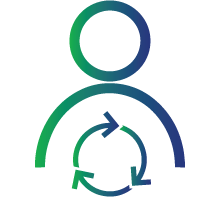
Metabolic disorders included in newborn screening are: • Phenylketonuria (PKU) • Methylmalonic acidemia • Maple syrup urine disease (MSUD) • Tyrosinemia • Citrullinema • Medium chain acyl CoA dehydrogenase (MCAD) deficiency
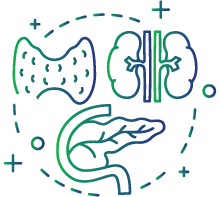
Hormonal disorders included in newborn screening are: • Congenital hypothyroidism • Congenital adrenal hyperplasia
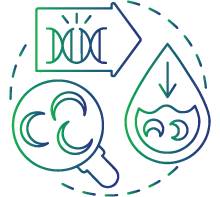
Hemoglobin diseases included in newborn screening are: • Sickle cell disease • Hemoglobin SC disease • Beta thalassemia
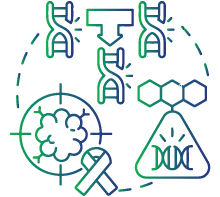
Other diseases included in newborn screening are: • Galactosemia • Biotidinase deficiency • Cystic fibrosis • Severe combined immunodeficiency (SCID) • Pompe disease (glycogen storage disease type II) • Mucopolysaccharidosis type 1 • X-linked adrenoleukodystropy • Spinal muscle atrophy (SMA)
DSTypes of tests in NBS
The following screening tests are carried out when the baby is usually 1 or 2 days old:
Blood test:
-
The baby's heel is pricked to get a few drops of blood and then the blood is sent to a lab for analysis. This blood spot screening test checks for almost 50 diseases
Hearing test:
-
A healthcare provider will place tiny earphones in the baby's ear to check how the baby responds to sound. This test is used to check for hearing loss.
Critical Congenital Heart Disease (CCHD) screen:
-
A healthcare provider will place a small soft, sensor on the baby's skin and attach it to an oximeter machine for a few minutes. The oximeter is used to measure the baby's oxygen levels. This pulse oximetry test checks for critical and life-threatening heart diseases, which when detected early can be treated with surgery
Symptoms of some of the conditions diagnosed using NBS
Most of the diseases diagnosed with NBS may not be presenting symptoms at birth and the symptoms will develop within the first few weeks or months. Symptoms presenting at birth for some of the diseases are
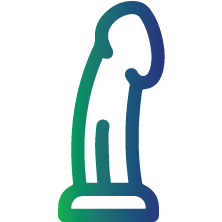
Congenital adrenal hyperplasia: Babies have abnormal genitalia like enlarged penis in boys and ambiguous (not clear) vagina in girls.
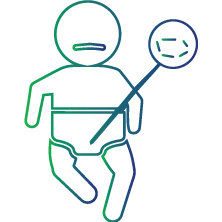
Cystic fibrosis: Babies may have difficulty in passing first bowel movement (meconium)
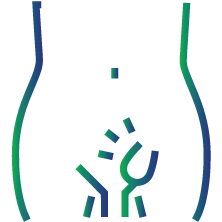
Mucopolysaccharidosis type I: Babies may have a soft protruding part around the belly-button (umbilical hernia) or lower abdomen (inguinal hernia)
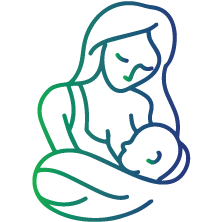
Spinal muscle atrophy: Severe weakness, poor head control and poor feeding
Preparation for test
No special preparation is required for this test
Interpretation of results
|
Parameters |
Normal test result |
Abnormal test result |
|
Blood Spot Screening |
Within normal limits/Negative |
· Borderline · Trait · Positive/Abnormal |
|
Hearing Test |
Pass |
Refer (did not pass) |
|
CCHD screen |
Pass |
Did not pass |
Deviation from normal levels indicates the following:
Blood Spot Screening
· If the screening result was within normal limits or negative it means that the screen was normal for the disorder and no additional follow-up is required,
· If the screening result was borderline it means that the results were between normal and abnormal, and there is a need to repeat the newborn screen or other blood tests.
· If the screening result was trait it means that the baby is likely a carrier of a particular hemoglobinopathy which is a group of blood disorders.
· If the screening result was positive or abnormal, it means that the baby could be suffering from the disease checked for, and further testing is required.
Hearing Test
· A “pass” result means that the baby was found to be hearing in both ears at the time of the screening.
· A “refer” (did not pass) result means that the baby is at risk for hearing loss or has hearing loss and requires follow-up.
CCHD screen
· A “pass” result means that the baby has normal oxygen levels and is not at risk for critical congenital heart disease (CCHD).
· A “did not pass” result means that the baby had lower than expected oxygen levels and further testing is required.
FAQs
Can newborn screening harm my baby?
The health care provider will use a tiny, sterile needle to prick the baby’s heel. There is a very slight risk of infection in the heel. The heel prick is performed with a sterile needle on a heel that has been thoroughly cleansed, which means the risk for infection would be very minimal. The benefits of newborn screening, like preventing learning delays and serious medical problems, greatly outweigh any discomfort the baby may feel during the heel prick
When will the results of the newborn screening be ready?
Results of newborn screening for hearing loss and heart disease will be available soon after the test. Blood test results are usually ready within 5–7 days
What happens after the newborn screening?
Your healthcare provider will contact you in case of an abnormal test result. After a diagnosis is confirmed, doctors might refer the baby to a specialist for further testing and treatment.
What are the most common diseases found in newborn screening?
Most test results are normal. Babies found to have a health condition after screening are most likely to have the following abnormalities:
· Hearing loss
· Low thyroid levels
· Cystic fibrosis, a disease that causes problems with breathing and digestion
· Red blood cell disorders
Can newborn screening ever be delayed?
If the baby is born very early (premature birth), has a low birth weight, or is ill, screening may not be done within 48 hours of birth. Screening may also be delayed if the baby has had a blood transfusion

